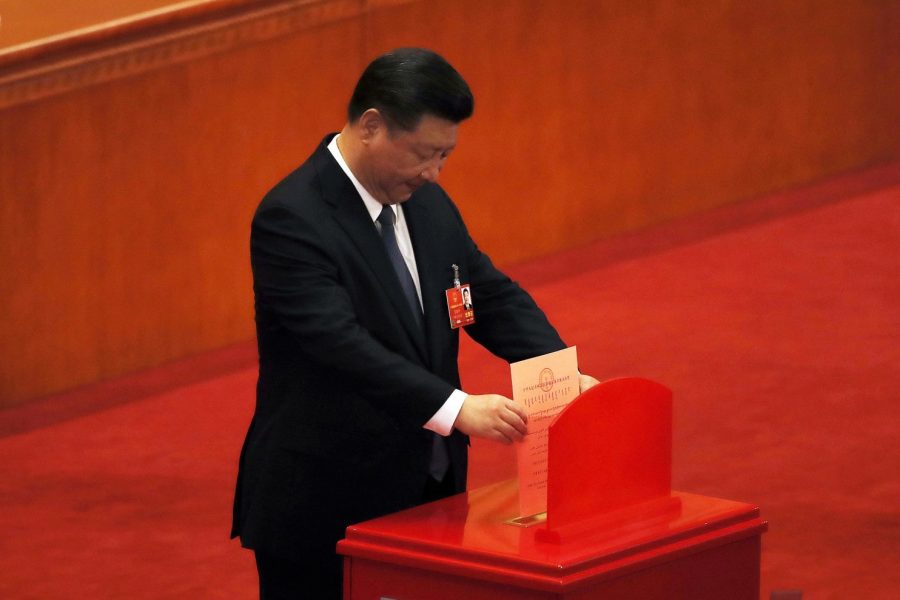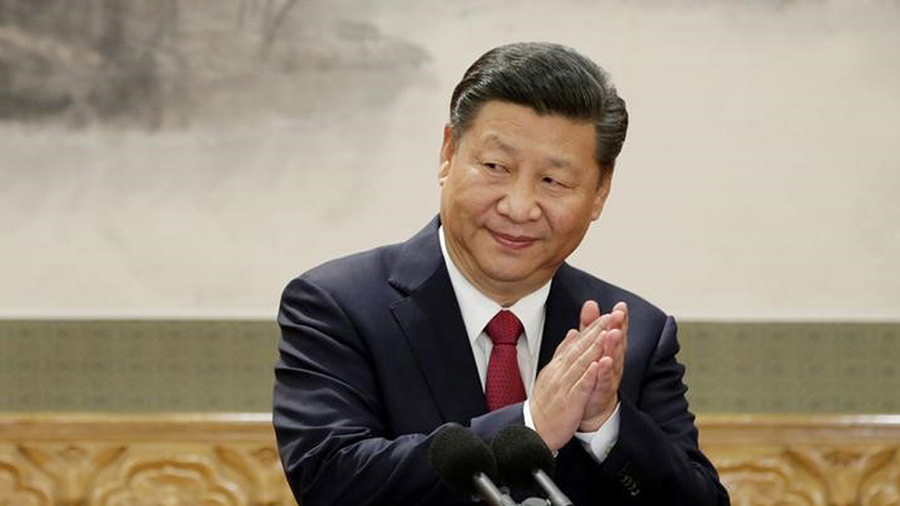On Sunday, the Chinese congress approved a constitutional amendment that abolishes the presidential term limits that have been enacted for 35 years. Now, President Xi Jinping is allowed to be China´s president indefinitely.
This represents a significant change in the China’s politics. The limits to the presidential term were adopted in the 80’s to avoid disastrous dictatorships like Mao’s. However, it seems that now Xi has become so important and influential in China’s politics that the party forgot the threats of letting someone take over the power with no restrictions.
“It means that Xi is now unquestionably a Leninist strongman,” said Steve Tsang, director of the China Institute at SOAS University of London. He also said that Xi, unlike his predecessor, is not first among equals but “lord and master of them all.”
It’s a constitutional regression
The package of constitutional amendments passed in the National People’s Congress almost unanimously. 2,958 delegates voted in favor of the constitutional amendment. There were just two people against it, three abstentions and one invalid vote.
However, the voting procedure was merely symbolic since China’s Communist Party – which controls the political life in China – had already announced the amendment about two weeks ago. The bill also included Xi’s political ideology, which was included in the preamble, and it strengthens the role of the party.

64-year-old Xi Jinping has undoubtedly become the most influential leader of China since Mao. Currently, he serves as head of state, leader of the ruling Communist Party, and commander of the armed forces of China – which comprises more than 1 million people.
Xi clearly had the intention of ruling beyond the end of this second period – as no successor was announced when he started his second period. Now, his mandate has been expanded indefinitely, having thus the opportunity to become the most important leader of Cinna’s history.
Of course: this will take the country back to those one-man rule days.
Xi Jinping will have more power
China’s under Xi’s leadership has considerably developed. China has become one of the most important countries in the world mainly because of its increasing economic relations with the world. Extreme poverty has been reduced, and more people have more access to services.
The Communist Party said that the amendment had “won the hearts of the people.” However, many have worried about the possible return of China to despotic eras.
“It’s a historic retrogression,” said Li Datong, who is a former editor of one of China’s state newspaper, the China Youth Daily. “Throughout history, only Chinese emperors and Mao Zedong had lifelong tenure until their deaths. And what came out of that was a disaster for the society and many painful lessons.”

The constitutional amendment that was approved today abolished the two-term limit established for the presidents. This system was put in place in the 1980’s by Deng Xiaoping to prevent other dictatorship like Mao’s, who assumed the power in 1949 to his death in 1976.
He Weifang, a law professor at Peking University, said that all the efforts to avoid life-long presidencies had been abolished. He said that the constitution of a country is not legitimate and real if it can be amended by the most influential people as they wish to. Xi’s power and current conditions have been compared to those of Vladimir Putin in Russia, and Recep Tayyip Erdogan in Turkey.
Xi, the father of the nation
Xi has managed to consolidate power inside of China, and has also strived to increase China’s role in the rest of the world with his signature theory “Xi Jinping Thought on Socialism with Chinese Characteristics for a New Era”. In China, Xi has been projected as the father of the nation, a man with all it takes to lead. This image will undoubtedly be strengthened from now on.
“Everyone expects that this will make Xi Jinping a stronger, more decisive leader, but it’s also possible that he will need to justify this change by maintaining his popularity,” explained Mary Gallagher, the director of the Lieberthal-Rogel Center for Chinese Studies at the University of Michigan. “That doesn’t bode well for difficult reforms ahead: Will the [Communist Party] be able to raise the retirement age? Enact a property tax? A second-term president with nothing to lose might have been in a better position to enact these changes and accept the blame before stepping down.”

This constitutional amendment also reduces dissenting views in policymaking as the scope of internal debates has been narrowed. Xi will practically be able to implement any policy he wants.
However, if the policies are not right for China, there’s no much to be done. It will be similar to what happened with Mao’s Cultural Revolution, which was put in place from 1966 to 1976.
Source: The Washington Post
